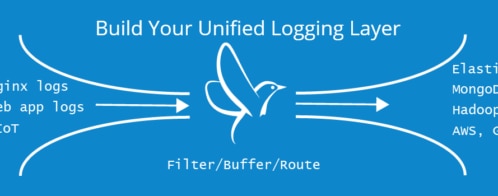The Truth is in the Logs
Last Friday, The New York Times reporter John Broder published a less than rosy picture of highway trip between Washington D.C. and Boston, cruising in Tesla’s Model S luxury sedan. The purpose of the trip was to range test the car between two new supercharging stations with a “speedy road trip”. Broder wrote about his anxiety-ridden stretches between charging stations, when energy consumption was outpacing mileage. Among other complaints, he was unhappy about the need to power off the heat on a cold Northeastern day and to drive slowly, in an effort to conserve battery power. The trip ended not at the charging station, but on the back of a tow truck having run out of electricity―a result he visually documented with a feature photo of the car being towed. Ouch.
This wasn’t the PR outcome that Tesla Motors chief executive Elon Musk expected. Avoiding a factless he-said-she-said on Twitter, he gave an interview saying that he was planning to publish the log files of the reporter’s vehicle, since they were at odds with details in the story. As reported in Venture Beat: “Musk claims Broder failed to mention how much he was punching the accelerator early in the ride, a move that Tesla warns its customers will drain the battery faster. Also, Musk says Broder took a detour through Manhattan. And he didn’t fully charge the car before departing.”
While the logs have yet to be published, if they are and if they do support Musk’s claims, it will be advantageous for Tesla — and the “logging” community at large; bringing light to the next big category of business intelligence.”Your honor, I’d like to call the #LogFile as my next witness.” Amusing, but true and will be happening more and more often inside and outside of business.
As this story demonstrates, software is behind everything these days. Massive machine data is being generated every minute not only from our computers and cell phones, but from the cars we drive, the appliances we use, and virtually anything with a chip, motor or battery run with an operating system. The golden nuggets of truth exist within the log files, holding the detailed data about an event that happened, one that cannot be disputed.
Such data, when mined and organized properly, provides a wealth of indicators to solve problems, such as why a web transaction timed out, the difference between a server being “on” and actually performing as intended, or to defend the veracity of a product’s claims. The tremendous value for IT departments (sysops, techops, devops and product developers) in having real-time access to log data for feedback on product performance is limitless. Log files can show where users struggled or took too long to accomplish tasks, or where your applications or hardware let them down. In trial-by-pubic cases like these log file data shines in a new light, far outside of the walls of technology but in the vernacular of the general public.
Logs don’t lie, but the truth can’t come out unless there are affordable and easy ways to release insights from these enormous log databases within the window of time in which they matter. Moving the conversation forward, suppose Tesla was able to collect and analyze log files on all of its vehicles and then receive alerts on issues to determine if they need addressing or if they are simply isolated events caused by user error, right back to the driver before the situation arose. That’s the end game: taking aggregate user data to find nuggets of wisdom that can then be fed back to the end user with guidance — seamlessly.
That’s where we come in. Loggly’s cloud-based log management service gives companies fast, centralized access to all of their log data, so they can solve issues, identify problems and make customers happy again understanding and answering “is this needle in the haystack or tip of the iceberg”. In the court of public opinion and social everything or in the case of 100% cloud driven buisness… anything less than real-time is becoming really-late.
When consumer product CEOs start talking about logs, that’s a pretty good sign that log files and log analytics are not just a stream of text and data to throw on the backup server every night―if you didn’t run out of storage for them already. Smart log file mining helps companies keep customers happy and their bottom line bigger. If you run a data-driven business, the more your company can act on that data to improve application/service/product performance and experience, the better off your customers will bef.
If Elon Musk is driving the future of Tesla, an automobile brand off his log files, shouldn’t your cloud application-driven business also being harnessing the full power of log intelligence?
The Loggly and SolarWinds trademarks, service marks, and logos are the exclusive property of SolarWinds Worldwide, LLC or its affiliates. All other trademarks are the property of their respective owners.
Hoover J. Beaver

